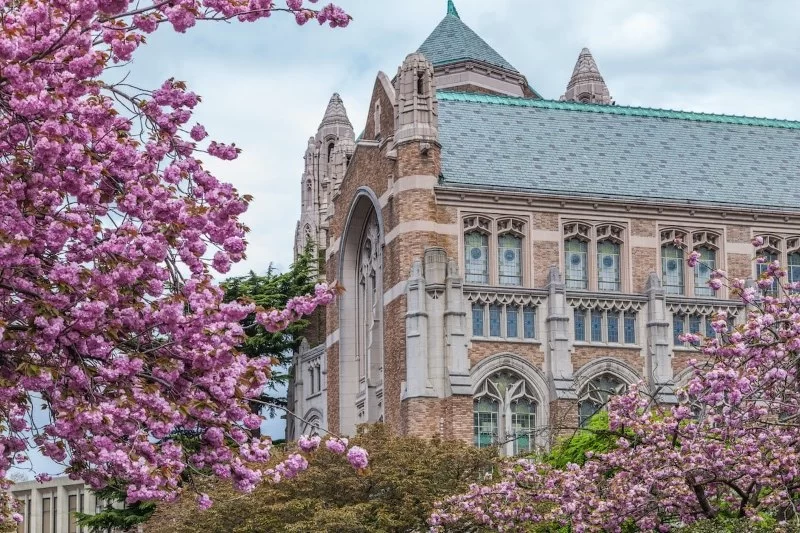
The Most Beautiful University Campuses to Tour in the U.S.: A Traveler’s Playbook
- choosing-where-to-start - How to Choose Where to Begin Your Campus Tour Journey
- east-coast-icons - East Coast Icons: History, Quads, and Seaside Walks
- ivy-charm-and-beyond - Ivy Charm and Beyond: Prestige Meets Daily Life
- midwest-legends - Midwest Legends: Gothic Spires and Great Lakes Light
- west-coast-spectaculars - West Coast Spectaculars: Cliffs, Canyons, and Modern Labs
- southern-grandeur - Southern Grandeur: Live Oaks, Brick Walks, and Tailgate Energy
- hidden-gems - Hidden Gems: Small Colleges with Big Personality
- planning-your-visit - Planning Your Visit: Seasons, Routes, and Photo Spots
- traveler-stories - Traveler Stories: Moments You Can’t Stage
- practical-tips - Practical Tips: Logistics, Etiquette, and Booking Help
How to Choose Where to Begin Your Campus Tour Journey
Ask ten travelers to name The Most Beautiful University Campuses to Tour, and you’ll hear ten different shortlists—each shaped by season, architecture, and the small moments that color a walk under maple trees at dusk. Before plotting pins on a map, decide what kind of beauty you’re chasing. Architectural elegance? Autumn foliage? Coastal air? Urban energy? Start by pairing two contrasting regions—say, the Northeast’s collegiate gothic and the Pacific’s minimalist glass—and give yourself time to let each campus breathe. A campus isn’t just buildings; it’s rhythm: the tap of coffee cups in the student union, the hush of a library rotunda, the sudden bell that turns a lawn into a river of color. If your goal is photography, plan around golden hour and commencement calendars. If you’re scouting for a student in the family, add weekday mornings to observe real class flow and cafeteria life. And if you’re simply traveling for the joy of place, choose two or three towns where the campus spills into neighborhoods with indie bookstores, bike paths, and diners that still pour coffee into heavy white mugs.
Match Aesthetic to Region
Seek stone arches and ivied courtyards in the Northeast, red brick quads and magnolias in the South, prairie light and collegiate gothic in the Midwest, and eucalyptus groves and ocean air in the West. You’re curating a gallery of place—choose pieces that contrast and surprise.
Define Your Story
Are you collecting architecture, nature moments, or student-life snapshots? Naming your story guides what you look for and how you frame it, turning “just another tour” into a personal narrative you’ll remember.
East Coast Icons: History, Quads, and Seaside Walks
The East Coast is a greatest-hits album for The Most Beautiful University Campuses to Tour. Think hand-cut stone, stately greens, and town-and-gown streets that glow at twilight. In New England, autumn turns campuses into living postcards—oaks blaze copper, libraries smell faintly of old paper, and chapel bells thread through the wind. Along the Mid-Atlantic, rivers and cobblestones lean into maritime light, and campuses feel stitched to their cities—close enough for museums and music, far enough for midnight study walks.
What to Notice
Look for axial quads that line up with towers, the way footsteps echo in cloisters, and the scene change between academic core and arts districts. Many East Coast campuses hide small museums with free admission; step in for a ten-minute reset and a bonus sketchbook page.
Traveler’s Case
On a November Sunday, a couple chasing foliage started with a sunrise jog around a riverside path, grabbed cocoa from a student-run café, and stumbled into an organ rehearsal in a chapel they entered just to warm up. They still talk about the sound—low, tidal—and the way it made the stained glass look like moving water.
Ivy Charm and Beyond: Prestige Meets Daily Life
Prestige is part of the magnetism, but the real draw is texture: ironwork gates that frame a sudden lawn, seminar buildings where light hits wood paneling like a scene from a novel, courtyards where bikes sleep in neat rows. Touring “Ivy and Ivy-adjacent” campuses gives a masterclass in proportion—how small gardens soften stone, how lanterns cradle evening, how brick overwhelms no angle when vines and trees do their quiet work.
How to Walk It
Trace historical axes first, then wander the periphery where labs and makerspaces buzz. Sit in a reading room for ten minutes—no photos, no notes—just listen to pages turn. Beauty here is as much sound and ritual as it is limestone and ivy.
Where It Lands
Your camera will love the contradictions: solemn libraries versus bright student centers; ancient courtyards against new glass bridges. This tension is what makes these stops essential among The Most Beautiful University Campuses to Tour.
Midwest Legends: Gothic Spires and Great Lakes Light
The Midwest brings surprise: lake wind combs lawns into velvet; gothic spires throw long shadows over winter snow; in spring, quadrangles bloom with tulips and hammocks. Here, scale matters—campuses spread wide, inviting bikes and long lenses. Architecture leans academic but playful: stone carvings of owls, bronze scholars with bookish grins, observatories aligned with a prairie sky so crisp it feels new even if you’ve seen a thousand sunsets.
Season Makes the Shot
Winter produces the most dramatic photos—black branches against pale stone—while September and May are best for everyday life: chalk on sidewalks, music from an open practice room window. If you’re building a multi-region loop, pair a Midwest giant with a small liberal-arts gem an hour away for contrast.
Story in the Details
A traveler on a rail-and-rental-bike circuit met a geology student cataloging rocks near a lakeshore. The impromptu five-minute lesson turned their afternoon into a treasure hunt for fossils built into stair treads. That’s the Midwest gift: hospitality tucked into the syllabus of the day.
West Coast Spectaculars: Cliffs, Canyons, and Modern Labs
Out West, nature co-authors the campus. Canyons, bluffs, redwoods, and ocean—their presence turns walkways into viewpoints and labs into glassy lanterns. These universities champion modernism: broad terraces for sunsets, courtyards planted with succulents, breezeways that frame slices of blue. The vibe is kinetic—students commute by board, bike, and runners’ stride; weekend surfers stash wetsuits in hatchbacks beneath eucalyptus shade.
How to See It
Plan two walks: morning for marine haze and afternoon for that cinematic, honeyed light. Scout architecture guides from campus arts departments; many publish free maps that turn your stroll into a curated gallery of facades, sculptures, and site-specific art.
Field Note
One January, a traveler timed a visit with king tide charts. They watched waves hammer a coastal cliff below a glass-walled library, then warmed up with noodles in the student center. The photo that won their friends’ poll wasn’t the perfect sunset—it was a candid of a student sketching palm shadows on graph paper.
Southern Grandeur: Live Oaks, Brick Walks, and Tailgate Energy
The South stages its beauty with theatrical grace: colonnades, brick arcades, fountains caught in cicada hum. Live oaks roof the walkways; azaleas light the edges in spring. Saturdays in autumn, football energy casts a glow over everything—banners, brass bands, the smell of barbecue folding into twilight. Even if sports aren’t your plan, campus lawns become open-air galleries of local culture—picnics that feel like operas of hospitality.
Walk, Pause, Listen
Seek the long allees where light filters through leaves, the bell towers that set the hour, the porches where students hold office hours like neighbors. Architecture here is choreography—the curve of a stair, the hush of a rotunda, the cool of limestone after 4 p.m.
Traveler’s Case
During a spring break road trip, two friends detoured to a campus rumored to have the state’s best camellia garden. They stayed for an impromptu brass ensemble on the quad. Their favorite memory: watching older alumni quietly keep time from park benches, a soft exchange between generations.
Hidden Gems: Small Colleges with Big Personality
Some of The Most Beautiful University Campuses to Tour are the ones you haven’t heard of yet—hill-town colleges with art-studio windows glowing like lanterns, desert schools whose courtyards smell of creosote after rain, mountain campuses where trails begin behind the library. What these places lack in scale, they repay in intimacy: a ceramics kiln tucked under pines, student gardens spilling herbs over stone edges, a black-box theater humming every Thursday night.
Why They Matter
Small campuses optimize the human scale: pedestrian nooks, benches with good sightlines, cafe patios that feel like living rooms. They’re easy to love and easier to photograph; even a phone camera catches the warmth.
How to Find Them
Look for regional arts festivals, undergraduate research symposia, and outdoor-ed programs; their calendars often align with the campus at its liveliest. When in doubt, ask a librarian for the building they think is most beautiful. You’ll get directions—and a story.
Planning Your Visit: Seasons, Routes, and Photo Spots
To make the most of The Most Beautiful University Campuses to Tour, plan like a field producer. Build routes that flow: arrival by late afternoon for first light check, pre-breakfast walk for dew and empty paths, midday museum pause, sunset lap for color. Use campus wayfinding PDFs to mark bell towers, botanical gardens, arboretums, and rooftop terraces. If you’re traveling with a prospective student, weave in a class sit-in or lab tour so beauty serves purpose. If this is pure leisure, anchor each day with one “slow place”—a reading room, a sculpture grove, a lawn—and let time stretch.
Seasonal Matrix
Spring: azaleas and camellias South, cherry blossoms and magnolias East. Summer: quiet greens and long dusk Midwest. Fall: foliage New England and Appalachian belts. Winter: architectural lines and low sun West and Midwest.
Refined Travel Support
For multi-campus itineraries, travelers often lean on Refined Travel [] to mesh flight windows, game-day closures, and lodging near pedestrian gates. Expert planners flag campus-only holidays, reserve timed museum slots, and suggest sunrise overlooks you won’t find on admission pages.
Traveler Stories: Moments You Can’t Stage
One family designed a rite of passage for their high-school senior: four weekends, four regions, a shared notebook. In the Midwest they watched students build a human-powered submarine in a makerspace. On the West Coast they joined a sunset yoga class on a lawn, accidentally, because the instructor waved them in. In the South they were handed peach ice cream by strangers at a tailgate. In New England they got lost between libraries and stumbled into a printmaking studio tour. What surprised them most was how campus beauty lowers the barrier to conversation—people want to point you toward the good things.
Solo Traveler Note
A photographer spent a month rail-hopping with a fifty-millimeter lens and a tiny tripod. Their favorite shot wasn’t a tower; it was a campus bus stop at blue hour, three students laughing, umbrellas glowing. Beauty, they wrote, is wherever intention and routine meet.
Practical Tips: Logistics, Etiquette, and Booking Help
Wear shoes that forgive detours, pack water, and bring layers—the microclimate between river quads and hilltop labs can shift fast. Visit on class days for real energy, but respect zones marked for students only. Morning is best for libraries; late afternoon flatters brick and stone. Ask before photographing inside chapels or studios. If you’re combining several of The Most Beautiful University Campuses to Tour into a single trip, cluster them by transit corridors and anchor nights near dining streets that cater to students—great food at fair prices and staff used to late arrivals.
Booking with Confidence
Refined Travel [] curates campus-adjacent inns, boutique hotels in historic districts, and bike-friendly rentals. Their specialists flag festival weekends, secure timed entries for on-campus museums, and line up walking guides who know the stories behind the stones. When beauty matters, logistics should disappear.
Take This With You
Three anchors: a route that flows, a slow place to savor, and one conversation you didn’t plan. Do that, and any campus on your map becomes the right one.

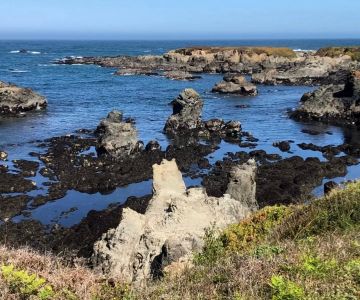

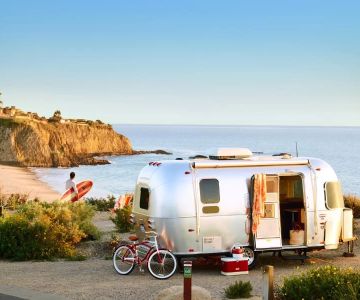
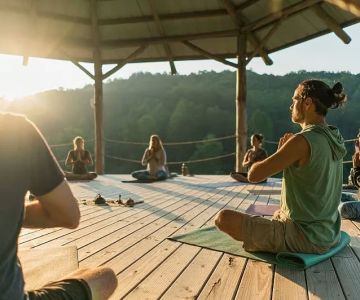
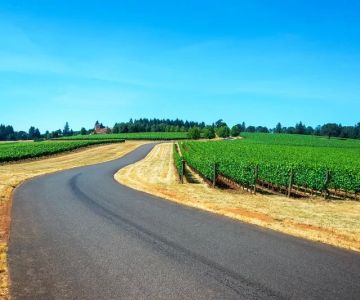
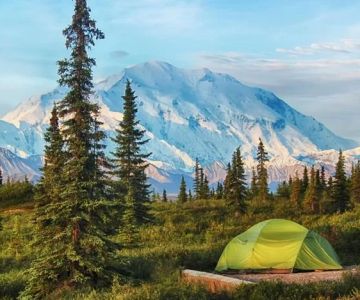
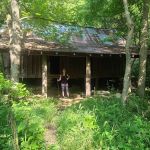 Kyles Landing Campground4.0 (190 reviews)
Kyles Landing Campground4.0 (190 reviews)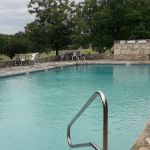 Farm Country Club4.0 (22 reviews)
Farm Country Club4.0 (22 reviews)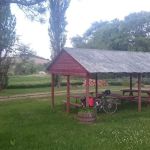 Obert Park Campground3.0 (5 reviews)
Obert Park Campground3.0 (5 reviews)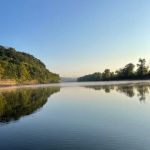 CampingLOZ0.0 (0 reviews)
CampingLOZ0.0 (0 reviews) Chesapeake Ranch Estates Campgrounds3.0 (23 reviews)
Chesapeake Ranch Estates Campgrounds3.0 (23 reviews)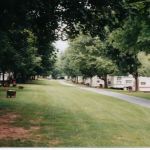 Riverside camping4.0 (68 reviews)
Riverside camping4.0 (68 reviews) Exclusive Travel Packages for First-Class Travelers: A Guide to Luxury Vacations
Exclusive Travel Packages for First-Class Travelers: A Guide to Luxury Vacations Refined Travel Experiences in Southeast Asia: Explore Luxury & Unique Destinations
Refined Travel Experiences in Southeast Asia: Explore Luxury & Unique Destinations How to Make the Most of Luxury Vacation Deals: Expert Tips for Savvy Travelers
How to Make the Most of Luxury Vacation Deals: Expert Tips for Savvy Travelers Refined Travel Itineraries for Art and Culture Lovers: Explore the World of Art and History
Refined Travel Itineraries for Art and Culture Lovers: Explore the World of Art and History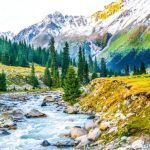 How to Enjoy a Refined Travel Experience in the Mountains
How to Enjoy a Refined Travel Experience in the Mountains Most Luxurious Destinations for Honeymooners: Top Spots for Romance and Luxury
Most Luxurious Destinations for Honeymooners: Top Spots for Romance and Luxury